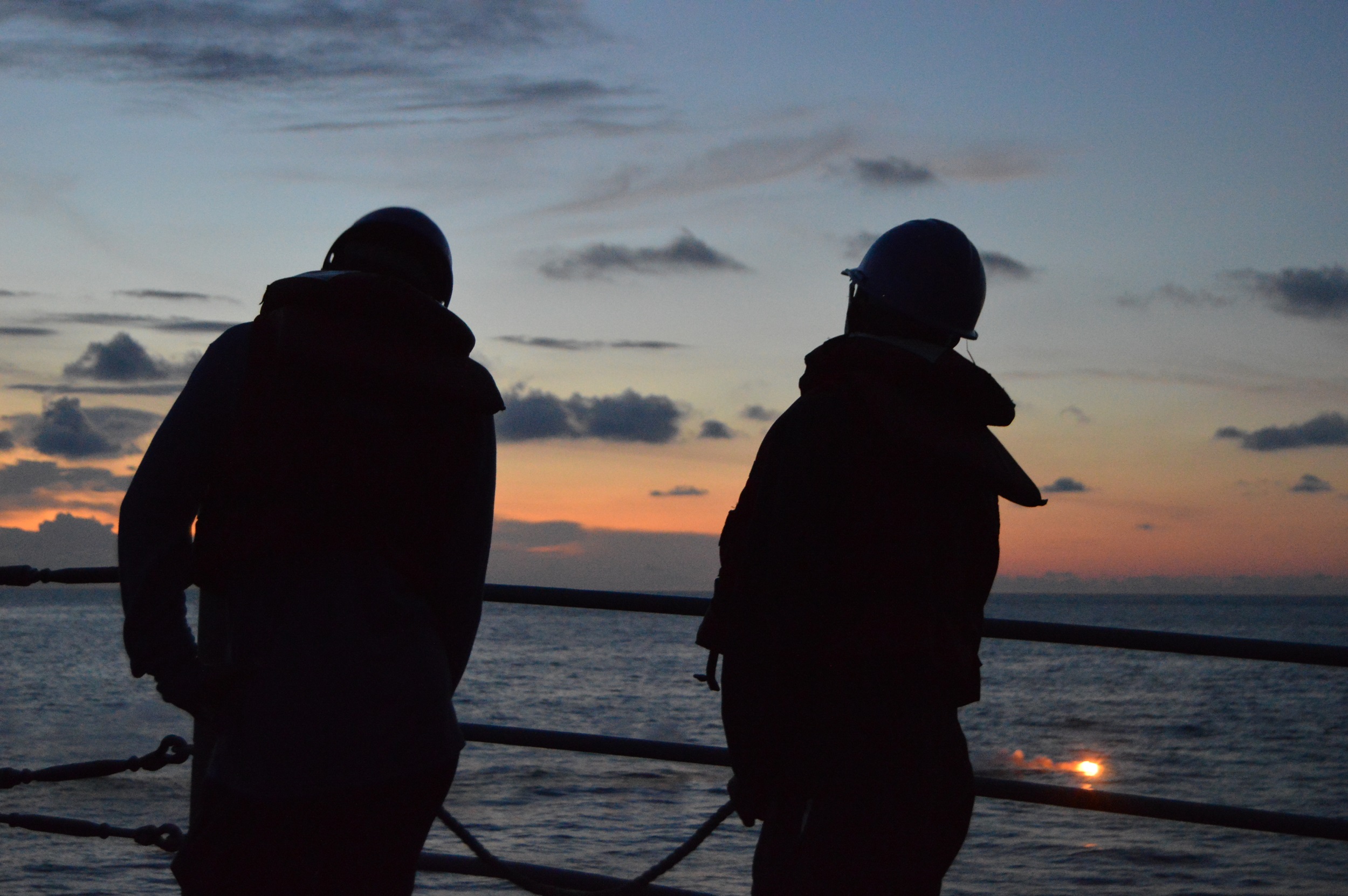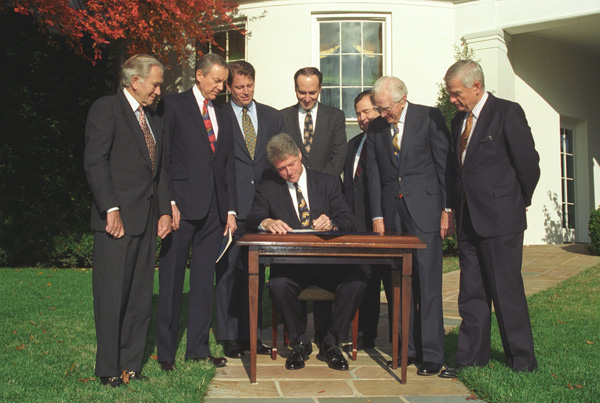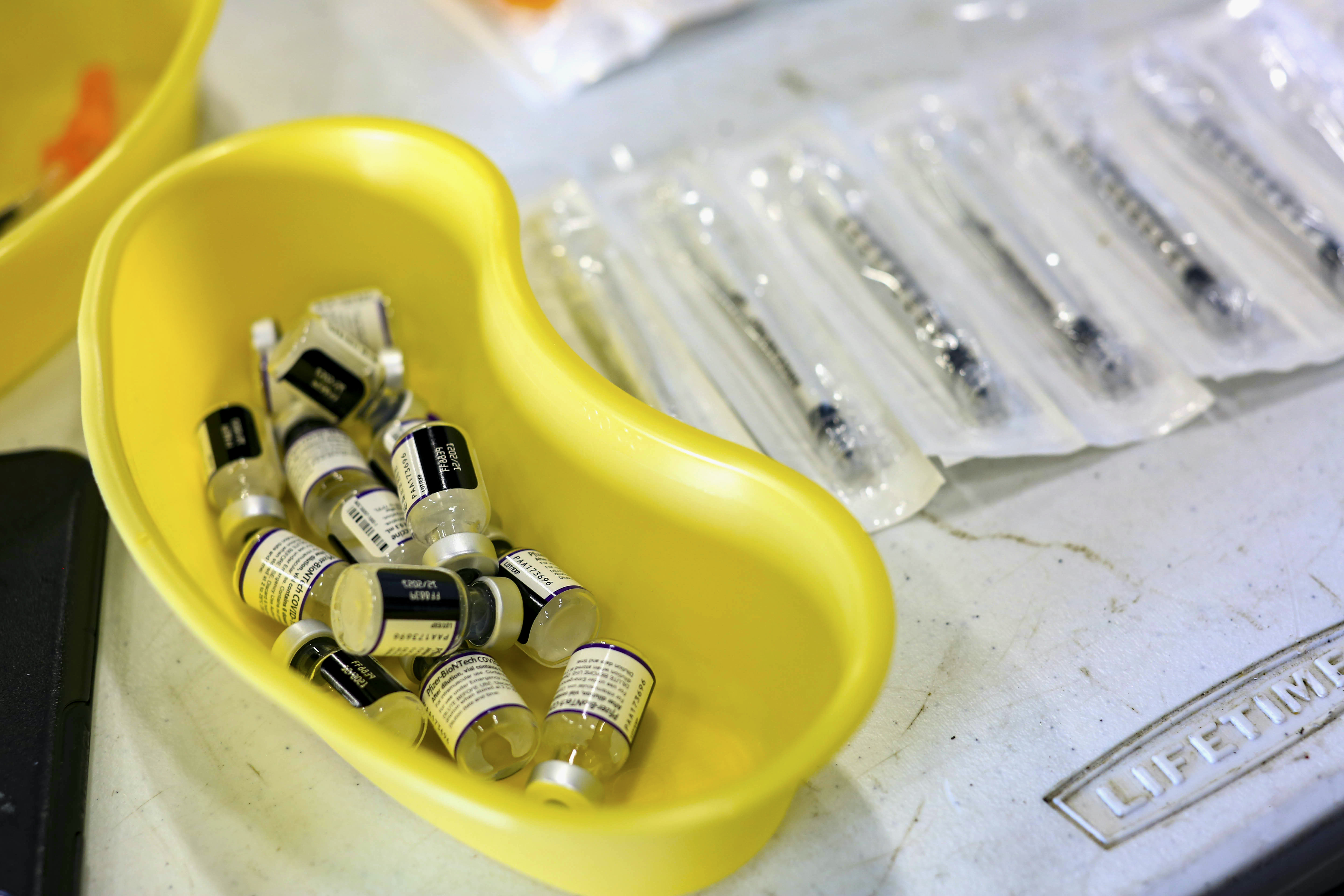
The Navy has yet to grant a religious exemption to the mandated COVID-19 vaccine, prompting sailors to turn to court to argue that their beliefs do not conflict with military readiness.
The Navy has received 3,740 exemption requests from sailors who argue that vaccination against COVID-19 would violate deeply held religious beliefs. In turn, the Navy has denied the requests, citing the necessity of vaccination for military readiness.
The core argument over the military vaccine mandate — whether military readiness outweighs religious beliefs and if sailors can serve without the vaccine — will now play out in court.
Religious Exemption Request
A religious exemption request involves more steps than just telling a commander that a sailor has a religious reason for avoiding vaccination.
Each service has its own instructions, but generally, the service member receives three types of counseling before the request is sent up the chain of command, said Trupti Brahmbhatt, a senior policy researcher with the RAND Corporation. In the case of the Navy or the Marines, the requests are adjudicated by the chief of naval personnel or the manpower reserve affairs department.
“Religious exemptions is a can of worms no one wants to open,” Brahmbhatt told USNI News.
Under the Naval Military Personnel Manual (MILPERSMAN) for religious exemption, military service members must undergo a series of counseling by chaplains, medical professionals and their supervisors in order for their commanders to decide if they should endorse or reject the exemption request, with the chief of naval personnel as the ultimate decision-maker.
The sailor must go through counseling from a chaplain to determine if the person’s religious reasons are sincerely held beliefs. Then the sailor must undergo medical counseling about the risks of not vaccinating and counseling by a supervisor about the effects of not getting vaccinated. All evaluations are then sent up the chain of command for adjudication.
Ultimately, each commander’s endorsement of the request sent to the chief of naval personnel must include an endorsement from the military chaplain, a recommendation to approve or not, information about operational or regional policies that are relevant, the negative effect on the ability to accomplish the mission and the number of service members in the unit who have received a similar exemption for a non-religious reason, according to the MILPERSMAN.
“When recommending denial of the request, a determination that the denial furthers a compelling governmental interest […] and that there is no less restrictive means of accommodating the request, such as an available alternative vaccination that meets both the religious need and the Navy’s immunization requirements as determined by [Navy Bureau of Medicine and Surgery]” is required, according to the MILPERSMAN.
If the chaplain determines the beliefs are sincerely held, he or she will include the necessary endorsement.
Chaplains are assigned to a unit, which means service members may not necessarily be with a chaplain who matches their religion, said Rabbi Mitchell Ackerson, who retired as an Army chaplain after more than 30 years in the service.
It falls on the chaplain to understand different religions so that they can determine if the person’s reason to not get vaccinated is a sincerely held belief, Ackerson said.
There are few religious communities in the world where there are stances against vaccination, he noted. Christian Scientists, who tend to rely on God to heal over medicine, do not have a stance against vaccination, but instead leave it up to individual practitioners.
There are some who are avoiding the vaccine due to the role of fetal cells, which are laboratory-grown and derived from cells that came from abortions done more than three decades ago. The use of those cells was one of the reasons cited in the recent special warfare lawsuit against the Navy, in which the plaintiffs raised concerns that the Navy was not considering their religious exemption requests. A U.S. District of Northern Texas judge granted a preliminary injunction in the case, citing concerns with the Navy’s apparent blanket denials.
“Forcing a service member to choose between their faith and serving their country is abhorrent to the Constitution and America’s values,” Mike Berry, general counsel for First Liberty Institute, which represented the special warfare community members, said in a statement. “Punishing SEALs for simply asking for a religious accommodation is purely vindictive and punitive. We’re pleased that the court has acted to protect our brave warriors before more damage is done to our national security.”
Sincerely Held Beliefs

The plaintiffs in the Navy lawsuit argue two religious concepts are reasons to avoid the available COVID-19 vaccines. The first is the use of fetal cells for testing the COVID-19 vaccines, which goes against their religious beliefs around abortion. The second is the inclusion of mRNA technology in the vaccine, which would go against the belief that God made their bodies and so they stay unchanged.
Fetal cells have been used in the production and testing of medicine for many years, according to a report in National Geographic.
However, there are some people, including the plaintiffs in the lawsuit, who did not realize the extent of fetal cells in medicine, said R. Davis Younts, an attorney representing more than 50 military clients over religious exemption concerns. Younts is a former judge advocate general in the Air Force.
That changed in June 2020, when it was reported that two of the companies vying for federal contracts for vaccine development would not use fetal cells, Younts said. This raised awareness for those who oppose fetal cells.
For the clients that he represents, most had endorsements from their chaplains included in their religious exemption request.
When determining if a person has a sincerely held religious belief, a chaplain will look at if their behavior matches with their belief, Ackerson said.
“You have to know your soldiers before you go off and make those decisions,” he said.
The chaplains also look at past behaviors, which could cause some issues for Younts’ clients, as they would have taken medicine or vaccines that were developed with the help of fetal cells.
Not asking for religious accommodations in the past could also be a red flag for the chaplains, Ackerson said.
Still, Ackerson said that in his experience the religious exemption was mostly used as an excuse for people who did not want to get the vaccine.
“No one really wants to push people on that, which is why they send you to the chaplain,” he said.
While the military does accommodate religious requests, such as observing shabbat — the Jewish holiday that marks a day of rest — it often does not grant religious exemptions for vaccine refusal, Ackerson said.
Vaccines are commonplace within the military, he said, adding that he received multiple vaccines, including against anthrax, another s that had a high refusal rate in the military.
“What makes this one different? This one has become very political,” Ackerson said.
COVID-19 and its vaccine have raised a number of issues, including the changing landscape of individualistic religion, said M. Christian Green, a senior fellow and senior editor at the Center for the Study of Law and Religion at Emory University.
While there are few religions with objections to vaccination, Green found that there are churches that are leaving it to the individual’s beliefs. That is evident in the reasoning for exemptions, she said. Many do not cite a specific church doctrine.
That is the case for the special warfare community, which cites the plaintiffs’ beliefs and their religions but does not cite specific church doctrine. It does tend to depend on the religion, Green said, with Protestant religions more individualistic than hierarchical Catholicism.
Military Readiness

After counseling from a chaplain, a person seeking a religious exemption will also need to go through counseling from a medical professional about the risks of not taking the vaccine, Brahmbhatt said.
Each person requesting a religious exemption must also go through counseling with a supervisor to go over how being unvaccinated will affect the unit.
Military readiness is creating one of the biggest conflicts in religious exemption requests. Even if a chaplain signs off, the needs of the military may overcome the beliefs of the person.
It happens in other religious accommodations, said Rabbi Jerry Seidler, a former Army JAG and now a medical chaplain in Baltimore. The enemy does not stop shooting just because a person is observing a religious holiday, he said.
The Pentagon has said it needs its personnel to be vaccinated to be considered ready, Brahmbhatt noted. This is to prevent the spread of the disease and allow service members to deploy to other areas outside the continental United States.
“Military people are different people,” she said. “They have chosen a profession that requires sacrifice, sometimes it requires the ultimate sacrifice. So immunization is a very small sacrifice.”
Turning to the Courts

When U.S. Northern Texas District Judge Reed O’Connor granted the preliminary injunction against the Department of Defense and the Navy, part of his reasoning was the blanket statement by the military denying religious exemptions.
It is the issue that Younts’ clients see as well, he said. It feels like “political theater,” he told USNI News, as if the military is not considering any of the requests and just has a blanket policy of denial.
“My clients are seeing the exact same memorandum being issued to all of them with just dates and their names changed,” he said.
In some cases, his clients have received the denial before they have submitted the paperwork, which he cited in suggesting that the process is just a formality.
Younts said he also represents a whistleblower who has seen the internal process of religious exemption requests. His client told him there is no policy in place to approve a religious exemption.
“There’s no approve memo,” Younts said. “There’s never even been an approve memo drafted. Regardless if the chaplain says that there is a sincerely held religious belief, even if the JAGs say ‘I recommend approval,’ what you’re seeing is his blanket denial.”
If the military gets more specific in their denials, that would alleviate some of the concerns, he said.
The religious exemption process in the Department of Defense is in good faith, Pentagon Press Secretary John Kirby recently told reporters.
“We believe that there should be a channel, a vehicle through which men and women of the workforce who believe they have legitimate religious exemptions to seek on their behalf, that they have a process to make that request and to have that request treated seriously,” Kirby said during an early January press briefing.
Religious Freedom Restoration Act

The other concern brought by Younts’ clients and those in the special warfare community lawsuit is the 1993 Religious Freedom Restoration Act, a U.S. law that calls for the federal government, military included, to accommodate religion in the least restrictive manner.
For Younts, that means testing, masks and social distancing, with the vaccine as a much more restrictive manner. He points to his clients’ ability to work during the pandemic as proof that the less restrictive measures work.
The Religious Freedom Restoration Act requires a legal test, said Marci Hamilton, a professor at University of Pennsylvania and CEO of ChildUSA. Hamilton was part of the team that took the act to the Supreme Court in the late 1990s.
The legal test asks if there is a compelling interest for passing the law, or in the military’s case, issuing the mandate. It then asks if it is the least restrictive measure.
“For every federal law, there is an argument for religious exemption,” Hamilton said. “And so for everything that [President Joe] Biden has been trying to do, the religious actors have been arguing that they have the Religious Freedom Restoration Act, which gives them the right to a religious exemption, whether or not the federal government would recognize it.”
In Hamilton’s opinion, there is a clear compelling interest for vaccine mandates. What the government and those opposing the mandate will argue about is if they are the least restrictive, she said.
Science would suggest they are, Hamilton said. Those who are vaccinated and boosted, even with the Omicron variant, are less likely to be hospitalized or die from COVID-19.
The plaintiffs in the special warfare lawsuit also argued that the military has not considered natural immunity against COVID-19 from already contracting the disease. Hamilton does not see that as an effective argument because it’s unclear how long immunity from having COVID-19 lasts or how it will react against other variants.
Preventing future variants is also an argument for required vaccination, Hamilton said, which could also steer the judge to favor the government’s arguments.
Outside of the Religious Freedom Restoration Act, the Constitution allows for vaccine mandates, Hamilton said, adding that the Supreme Court has a body of legal cases that support vaccine mandates for deadly diseases.
Vaccinate or Separate

If the military were to prevail in the courts, those with denied religious exemptions will have to either start the vaccination process or face separation. The Navy also allows for an expedited process for those who are close to their retirement or discharge dates, with the sailors receiving honorable discharges unless there are extenuating circumstances, USNI News previously reported.
Religious exemptions are not the only ones considered by the military, but they are the most subjective, RAND’s Brahmbhatt said.
Medical exemptions, which are granted on a temporary and permanent basis, are objective, Brahmbhatt said. Those are evaluated by medical staff to determine if a person can or cannot get the vaccine.
The Navy has granted eight permanent and 273 temporary medical exemptions. Those who receive a medical exemption will still have limitations on their duties because they are considered non-deployable, USNI News previously reported.
The military does face a dilemma with the separations, Brahmbhatt said, as they could lose personnel with years of training already invested in them. This includes the SEALs who are suing the Navy over the mandate.
For the military, it will have to decide if it is willing to keep the few people who have not been vaccinated or cut its losses, she said.
So far, it seems the branches are choosing the latter option, with the Navy discharging 22 sailors, all of whom were in their first 180 days of service. The Marine Corps have separated 334 Marines.
“The problem is people don’t want to leave,” Brahmbhatt said, “and they want to stay unvaccinated.”





